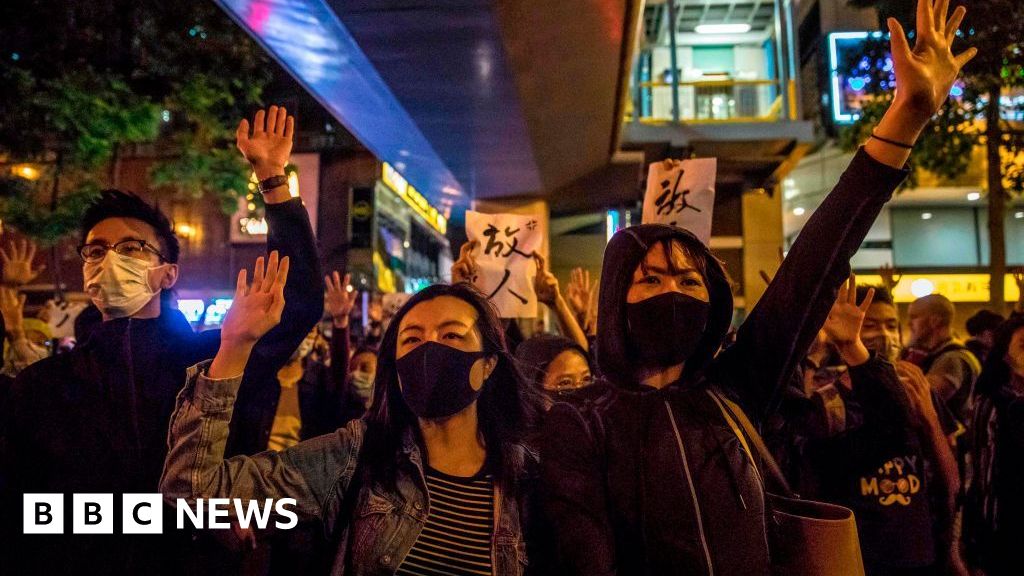image source, Getty Images
- author, Francis Mao
- role, bbc news
- Reporter Singapore
-
Hong Kong's government will be able to move forward with criminalizing protest songs under the city's national security law after winning a court challenge.
The High Court last year rejected the government's request to ban glorification of Hong Kong, saying it would have a “chilling effect” on free speech.
But on Wednesday, the Court of Appeals overturned that decision.
The move could deepen fears that the city's freedoms will be further eroded.
Amnesty International said the government's ban was “as ridiculous as it is dangerous”.
Meanwhile, the US said it was the “latest blow to the city's international reputation”.
Wednesday's court ruling said the song can still be used for “academic” or “news” activities.
However, the melody and lyrics may not be broadcast, performed, or performed in any environment if the user intends to “incite others to secede” or if they are used “with inflammatory intent” against the Hong Kong government. May not be shared or copied. Those found guilty of violating the national anthem ban could be sentenced to life in prison.
It is also illegal for people to use this song to advocate Hong Kong's separation from China or present it as the national anthem of the territory.
A Chinese Foreign Ministry spokesperson said on Wednesday that banning the song was a “necessary measure (for Hong Kong) to fulfill its responsibility to protect national security.”
“The banning of 'Glory to Hong Kong' is not only a senseless attack on Hong Kongers' freedom of expression, it also violates international human rights law,” said Sarah Brooks, Amnesty International's China director.
“Singing protest songs should never be a crime and is not a threat to 'national security.'
Although Hong Kong is part of China, it has had some degree of autonomy since British rule ended in 1997. Activists say there has been a gradual erosion of democratic freedoms since then.
The song “Glory to Hong Kong” is sung in Cantonese, the region's native language, and emerged during the pro-democracy movement against the controversial 2019 extradition law, and later became the movement's unofficial anthem. It became.
The lyrics include “Liberate Hong Kong” and “A revolution of our time. May the people rule proudly and freely, now and forever. Glory to Hong Kong.”
The new ban clearly codifies when use of the song is illegal, but people in Hong Kong were already being punished under the national security law for playing the song.
In 2022, a harmonica player was arrested for playing the song outside the British Consulate in Hong Kong to mourn the death of Queen Elizabeth II.
This song has been banned in schools since 2020.
Officials have also petitioned internet giants like Google to remove protest songs from search results and video platforms, but the sites have refused.
The song is sometimes mistakenly played as a city song at official events such as international sports matches, drawing the ire of authorities.
On Thursday, the appeals court said it was within the scope of current national security law to seek a ban on the song's use in political contexts.
Because it is difficult to prosecute individual criminal acts, “a more effective way to protect national security” is to ask internet platforms “to stop facilitating the activities that take place on their platforms.” said.


